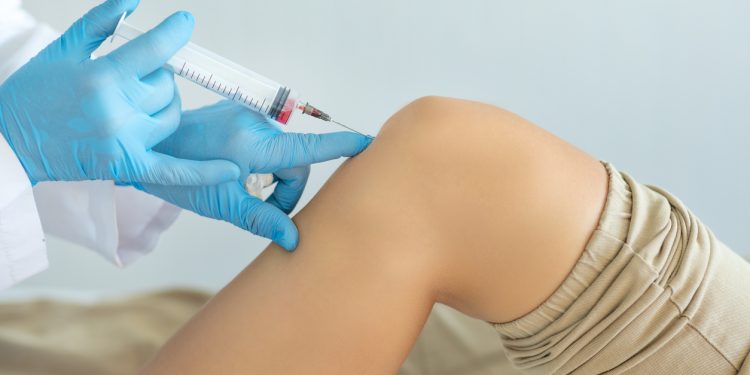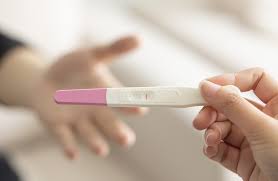Platelet-Rich Plasma (PRP) injection is a medical procedure that has significantly gained popularity in orthopaedics. It is actually regarded by many as one of the best treatment options for several musculoskeletal conditions.
This treatment harnesses the healing properties of your blood to accelerate tissue regeneration and promote recovery. In this article, we will dig deep to explore what PRP injection is good for and most importantly, why your orthopaedic surgeon may recommend you PRP injection for knee. Read on!
Table of Contents
What is PRP Injection?
If you’ve been recommended PRP injection for a musculoskeletal condition, it is natural to wonder what it involves. Well, here’s what you need to know;
PRP injection involves the extraction of your blood. The extracted blood is then centrifuged to separate the platelet-rich plasma from other blood components. Platelet-rich plasma is jam-packed with growth factors that are pivotal for tissue healing and regeneration.
So, when injected back into the injured area, Platelet-rich plasma (PRP) will stimulate your body’s natural healing processes. This stimulation can help with tissue repair and inflammation reduction.
But what is PRP good for?
Many patients who are referred for PRP injections in our clinic frequently ask; what is PRP good for? To answer this question, we’ve rounded up the key orthopaedic issues that may warrant a PRP injection. See them below;
- Tendon Injuries: Tendons, which connect muscles to bones, are prone to injuries like tendonitis and tendon tears. PRP injections have shown promise in accelerating tendon healing. They do not only improve pain relief but also functional outcomes in conditions like Achilles tendonitis and tennis elbow.
- Osteoarthritis:Osteoarthritis is a degenerative joint disease that do not only cause pain, but also stiffness, and reduced mobility. PRP injections offer a potential alternative for managing osteoarthritis symptoms. PRP can stimulate cartilage repair and reduce inflammation. The treatment achieves this by delivering growth factors directly to the affected joint. Although the evidence is still evolving, several studies have demonstrated promising outcomes.
- Ligament Sprains and Tears:Ligament injuries like sprains and tears are common in sports and everyday activities. PRP injections have been used as part of the treatment strategy for ligament injuries. This is particularly true for cases where conservative methods may not be sufficient. Studies have indicated that PRP injections can enhance ligament healing and improve stability.
- Muscle Strains:Muscle strains are characterized by the stretching or tearing of muscle fibres. They’re particularly prevalent in athletes and physically active individuals. PRP injections have shown promise in accelerating muscle healing and reducing recovery time. Professional athletes can use PRP injections to facilitate a faster return to play.
What to Expect when Getting a PRP Injection?
Preparing for a PRP especially when you still have no idea what it involves may seem a little daunting. You do not have to fret though, especially if you’re working with a skilled orthopaedic specialist.
Now, your PRP injection, you will typically undergo a thorough evaluation. This is essentially the very first step in the whole procedure.
It is an essential one as it allows your provider to determine the appropriateness of the treatment for you. If you’re a good candidate, you will be given the green light to proceed with your treatment.
Now, the procedure itself involves several steps. Key among these steps include;
- Blood extraction
- Centrifugation
- Collection of PRP, and
- Injection into the targeted area
Ultrasound or other imaging techniques may be ordered during your treatment. These may be needed to ensure accurate needle placement.
The recovery period after the injection varies depending on the specific condition. However, it usually involves a period of rest, physical therapy, and a gradual return to activity.
Who is a Good Candidate for PRP Injections?
PRP (Platelet-Rich Plasma) injections can be a beneficial treatment option for various conditions. However, it isn’t ideal for everyone.
That said, there are several factors your orthopaedic specialist will need to consider in determining if PRP injections are suitable for you. Here are some key points that helps identify who makes a good candidate for PRP injections:
- Health conditions: PRP injections may not be suitable for you if you live with cancer, an active infection, unstable angina, or severe hypovolemia. These conditions cannot only interfere with the effectiveness of the treatment. They may also affect its safety to you. You may also not be approved for PRP injections if you live with blood disorders like anaemia or platelet disorders. In this case, you may be disqualified due to abnormal platelet function.
- Realistic expectations: It is crucial for patients to have realistic expectations when considering PRP treatment. While PRP injections offer potential benefits, it’s important to understand that individual responses can vary, and complete resolution of symptoms may not always be achieved. Managing expectations and discussing achievable goals with a qualified healthcare professional is essential for a successful treatment experience.
- Platelet function: Normal platelet function is necessary to qualify for PRP treatments. Platelets play a vital role in clotting and healing processes, and any platelet disorders can interfere with the effectiveness of PRP injections.
- Consultation with a healthcare professional: You will need a thorough consultation with a qualified medical professional before proceeding with a PRP. As earlier mentioned, this is essential to assess the suitability of PRP treatment for your individual case. During the consultation, the specialist will evaluate your medical history. They will also assess your current health status, and specific condition. Importantly, they will also discuss potential risks, benefits, and expected outcomes of the treatment. Discussing these basics is essential for you can make an informed decision about the treatment.
- Treatment goals: The fact is that every patient has their own treatment goals. So, they may vary. PRP injections can be used for a range of conditions. They may be recommended for you if you’re dealing with musculoskeletal injuries, hair loss, and skin rejuvenation issues. Discussing your specific goals with a healthcare professional will help determine if PRP injections align with your expectations and desired outcomes.
Conclusion
PRP injections can help with several musculoskeletal issues. But to benefit from the treatments, you must be a good candidate.
So, it is wise to consult a qualified orthopaedic specialist if you’re already considering PRP injections. A knowledgeable specialist will evaluate your situation and provide personalized recommendations.
If you’re in Singapore, get in touch with us today to book your appointment. Call or visit us at;
Artisan Sports & Orthopaedics Surgery
290 Orchard Road
Paragon Medical Centre #07-12,
Singapore 238859
(65) 8909 8877


 Home
Home









